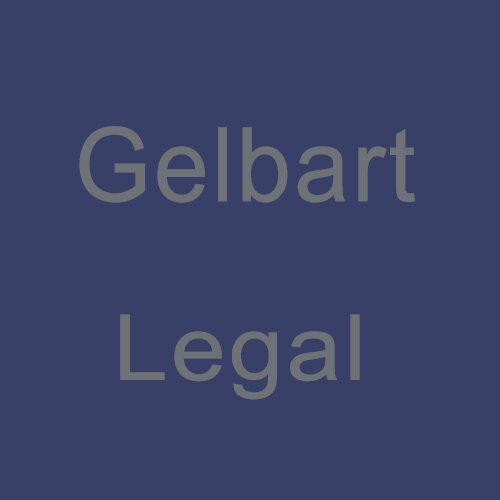Best Project Finance Lawyers in Germany
Share your needs with us, get contacted by law firms.
Free. Takes 2 min.
Or refine your search by selecting a city:
List of the best lawyers in Germany
About Project Finance Law in Germany
Project Finance in Germany is a specialized field of law that supports the funding of large infrastructure, energy, industrial, and public service projects. In Project Finance, lenders primarily look at the future cash flows of the project itself rather than the balance sheets of project sponsors. This type of financing is commonly used for structuring investments in renewable energy, energy infrastructure, public transportation, and real estate developments. Germany, recognized for its advanced infrastructure and stable legal environment, has become an attractive destination for both domestic and international investors seeking to participate in long-term, capital-intensive projects.
Why You May Need a Lawyer
There are several reasons you may require legal assistance when dealing with Project Finance in Germany. For example, legal professionals can help in:
- Drafting or reviewing complex financing agreements and contracts
- Negotiating terms with lenders, investors, or public authorities
- Ensuring compliance with German banking, tax, and regulatory requirements
- Structuring the project to minimize legal and financial risks
- Navigating cross-border financing and foreign investment rules
- Securing licenses, permits, or approvals for your project
- Resolving disputes that arise during the project lifecycle
- Managing risks with collateral, guarantees, and security packages
- Advising on environmental and zoning regulations
- Handling insolvency or restructuring scenarios
Given the high stakes and technical nature of these transactions, expert legal advice is vital to safeguard your interests and ensure the success of your project.
Local Laws Overview
Project Finance in Germany is shaped by a variety of local and European laws designed to promote transparency, risk mitigation, and efficient financial markets. Some of the key legal aspects you should be aware of include:
- Contract Law: The German Civil Code (Bürgerliches Gesetzbuch, BGB) forms the basis for drafting and interpreting commercial agreements between parties involved in project financing.
- Banking and Financial Regulation: The German Banking Act (Kreditwesengesetz, KWG) sets out regulatory requirements for lenders and financial institutions providing project finance.
- Securities and Collateral: German law provides various options for securing loans, such as land charges (Grundschuld), mortgages, and pledges, ensuring creditor protection.
- Taxation: Tax treatment of project entities depends on the structure and can affect the project's overall feasibility. Familiarity with corporate tax, VAT, and withholding tax rules is crucial.
- Permits and Licensing: Large projects typically require multiple permits relating to construction, environment, and operation. These are governed by local, state, and federal regulations.
- Public-Private Partnerships (PPP): The legal framework allows for close cooperation between public and private entities, often governed by specific concession or project agreements.
- Insolvency Law: German insolvency proceedings affect the rights of creditors and require careful planning in the arrangement of security and repayment structures.
- EU Regulations: Many large-scale projects must also comply with EU procurement, competition, and state aid rules.
Understanding this legal landscape is essential for reducing legal risks and ensuring smooth project implementation.
Frequently Asked Questions
What is Project Finance and how does it differ from traditional financing?
Project Finance refers to funding projects based on their projected cash flows and assets rather than the general creditworthiness of sponsors. Generally, lenders have limited or no recourse to the sponsors' assets outside the project itself.
Which types of projects are typically financed through Project Finance in Germany?
Typical projects include renewable energy facilities, highways, airports, hospitals, industrial plants, and public infrastructure developments.
What are the main risks addressed in Project Finance agreements?
Main risks include construction risk, operational risk, market risk, financial risk, environmental risk, and regulatory risk. Agreements allocate these risks among parties involved.
Do I need a specific company structure for a Project Finance transaction in Germany?
Yes, projects are often set up as Special Purpose Vehicles (SPVs), usually limited liability companies (GmbH) or partnerships, to isolate financial risk.
What role do German authorities play in Project Finance?
Authorities may be involved in granting permits, licenses, concessions, or evaluating compliance with environmental, zoning, or procurement regulations.
How is collateral typically structured in German Project Finance?
Collateral may include land charges, mortgages, pledges over shares and assets, and assignment of project receivables. The structure depends on the project's specifics and lender requirements.
Are foreign investors allowed to participate in Project Finance in Germany?
Yes, Germany welcomes foreign investors, although certain sectors have investment screening and regulatory requirements that must be observed.
What are the main legal documents involved in a Project Finance transaction?
Key documents include loan agreements, security documents, project agreements, direct agreements, and shareholder agreements.
What happens if the project cannot repay its financing?
If a project defaults, lenders enforce their security interests, which may involve taking over the project's assets or rights. Insolvency proceedings may also be initiated.
How long does it take to set up Project Finance in Germany?
Timelines vary based on project complexity but can range from several months to over a year, depending on negotiations, regulatory approvals, and financial close.
Additional Resources
For more information and legal guidance in Project Finance, consider consulting the following organizations and resources:
- Federal Financial Supervisory Authority (BaFin) - Germany's banking and financial market regulator
- Federal Ministry for Economic Affairs and Climate Action (BMWK) - Offers guidance on economic and energy projects
- German Energy Agency (dena) - Provides resources on energy infrastructure projects
- Chamber of Commerce and Industry (IHK) - Support for businesses and investors
- German Bar Association (DAV) - Find qualified project finance lawyers
- European Investment Bank (EIB) - Support and financing for European infrastructure projects
Next Steps
If you require legal assistance with Project Finance in Germany, consider taking these steps:
- Identify your project's scope, funding needs, and stakeholders
- Consult with a specialized lawyer or legal firm experienced in German Project Finance
- Prepare all necessary project documents, feasibility studies, and business plans
- Assess regulatory, licensing, and tax requirements early in the process
- Engage professional advisors, including financial and technical consultants, as needed
- Work with your lawyer to negotiate, draft, and review all relevant agreements
- Maintain open communication with lenders, investors, and authorities throughout the project lifecycle
Seeking professional legal advice at an early stage can protect your investment and help you navigate the project finance process smoothly and securely.
Lawzana helps you find the best lawyers and law firms in Germany through a curated and pre-screened list of qualified legal professionals. Our platform offers rankings and detailed profiles of attorneys and law firms, allowing you to compare based on practice areas, including Project Finance, experience, and client feedback.
Each profile includes a description of the firm's areas of practice, client reviews, team members and partners, year of establishment, spoken languages, office locations, contact information, social media presence, and any published articles or resources. Most firms on our platform speak English and are experienced in both local and international legal matters.
Get a quote from top-rated law firms in Germany — quickly, securely, and without unnecessary hassle.
Disclaimer:
The information provided on this page is for general informational purposes only and does not constitute legal advice. While we strive to ensure the accuracy and relevance of the content, legal information may change over time, and interpretations of the law can vary. You should always consult with a qualified legal professional for advice specific to your situation.
We disclaim all liability for actions taken or not taken based on the content of this page. If you believe any information is incorrect or outdated, please contact us, and we will review and update it where appropriate.
Browse project finance law firms by city in Germany
Refine your search by selecting a city.
















